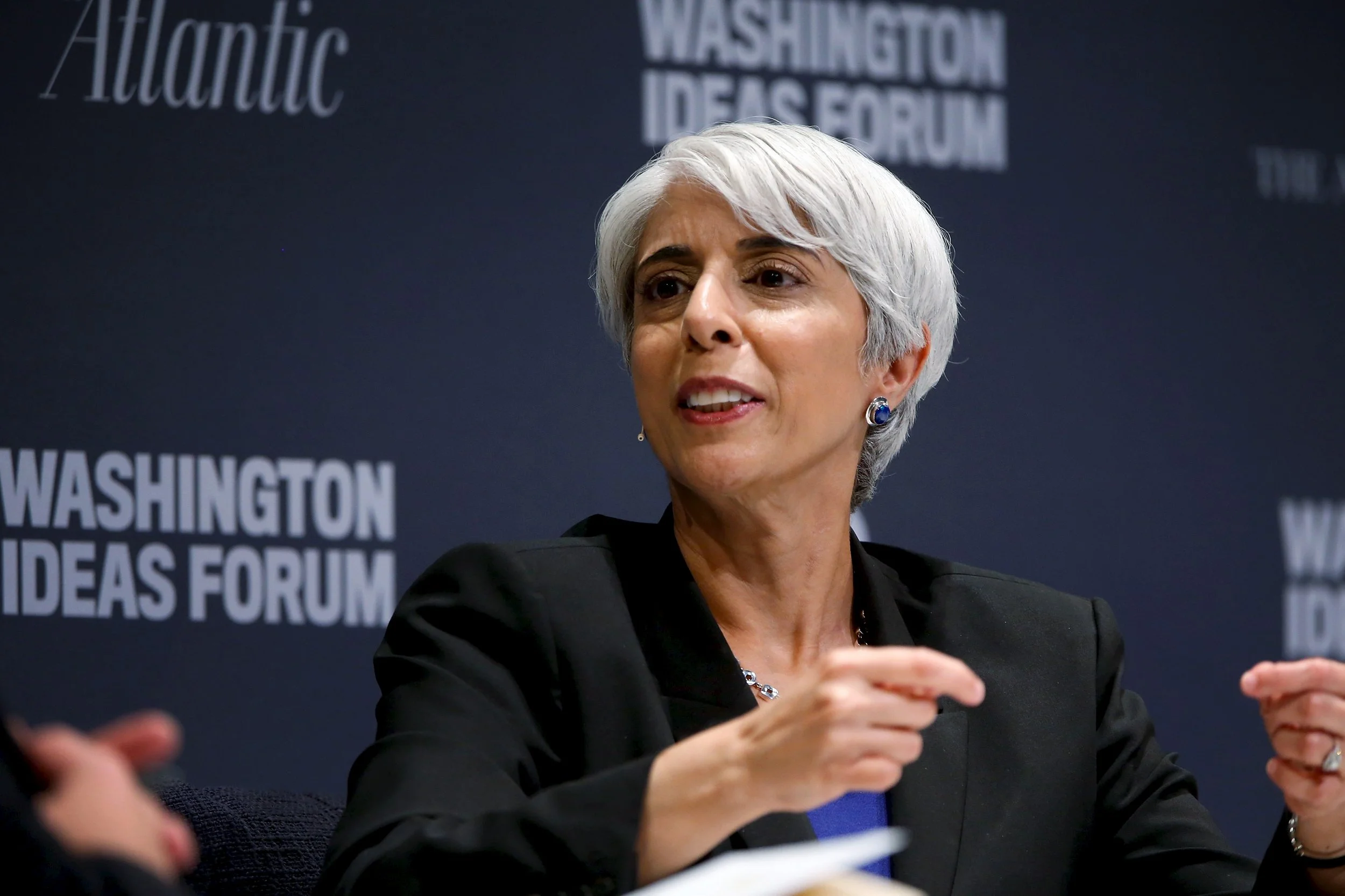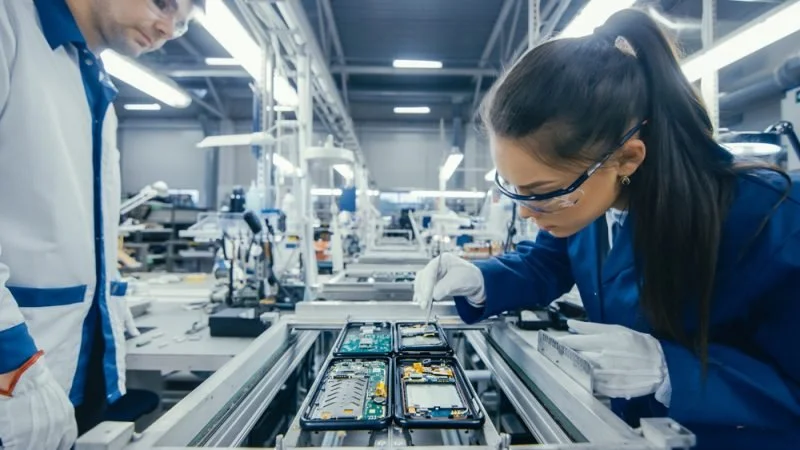Just over a week ago, OpenAI introduced ChatGPT, a cutting-edge artificial intelligence (AI) chatbot that uses a massive dataset to generate human-like responses to text-based inputs. In just five days, the chatbot reached over one million users, a milestone that took Facebook almost a year to achieve when it first launched. As we continue to develop and advance this technology, it will undoubtedly have a significant effect on the future of work and the way we approach tasks and responsibilities. It is important that we carefully consider how we can use AI to its full potential while also mitigating any possible negative effects. By doing so, we can ensure that AI will be a powerful and positive force for change.
A New Apprenticeship Requirement Could Slow Federally Funded Energy Projects
Federal Regulators Should Approve Election Prediction Markets
The US Commodity Futures Trading Commission (CFTC) continues to wrestle with how to best regulate prediction markets. The commission is expected to make a decision as soon as this week on whether the startup Kalshi can offer a market on the outcome of the upcoming midterms. Election prediction markets have proven to be a powerful tool for forecasting elections and are typically more accurate, timely, and complete than conventional methods. Kalshi’s proposal does not pose a risk to the integrity of the US election system. Approving Kalshi’s submission would be a step in the right direction for the commission and promotes the public interest
Why Arati Prabhakar is Uniquely Suited to Lead OSTP
On September 22, the Senate confirmed Arati Prabhakar as White House Office of Science and Technology Policy (OSTP) director, the first woman of color and immigrant to hold the position. Prabhakar is uniquely suited for navigating these challenges. She previously headed the Defense Advanced Research Projects Agency and the National Institute of Standards and Technology. She held several roles in Silicon Valley, including with the early-stage venture firm US Venture Partners, and she recently founded the nonprofit Actuate, which seeks to bring new actors to the table in developing solutions for areas such as climate, health, and trustworthy data. She will be able to draw on that public and private sector experience to shape how agencies stand up these new programs and design the guidelines and rules for new funding streams.
Implementing Federal Innovation Programs: A Road Map for States
An unexpectedly productive Congress has passed the Infrastructure Investment and Jobs Act (IIJA), CHIPS Act, and Inflation Reduction Act (IRA), which aim to improve America’s infrastructure, boost competitiveness with China, and accelerate new climate technologies. Attention now shifts to implementation. State and community leaders should begin work now to prepare for funding competitions on the horizon.
Implementing Federal Innovation Programs: A Road Map for States
An unexpectedly productive Congress has passed the Infrastructure Investment and Jobs Act (IIJA), CHIPS Act, and Inflation Reduction Act (IRA), which aim to improve America’s infrastructure, boost competitiveness with China, and accelerate new climate technologies. Attention now shifts to implementation. State and community leaders should begin work now to prepare for funding competitions on the horizon.
Congress Must Pass Innovation Legislation, Despite Hurdles
Senate leaders are expected to release updated text on a slimmed-down set of bills to bolster the US semiconductor chip industry. The measures will likely include $52 billion in subsidies and an investment tax credit to boost US manufacturing, but the rest of the Bipartisan Innovation Act (BIA) remains in limbo at a time when more urgent action is needed. Strengthening America’s leadership in science and innovation tomorrow will depend on three crucial areas of investments needed today in bolstering semiconductor manufacturing, boosting federal R&D, and addressing the talent gap.
Harnessing the Best of Automation While Minimizing the Downside Risks
The pandemic and economic disruptions have accelerated the adoption of automation technologies that will introduce important benefits to businesses and consumers but may also create disruptions for many workers and communities. Policymakers and leaders can take steps now to help navigate these disruptive changes.
American Space Achievements: Lessons from the Past Year
The past year was filled with incredible technological breakthroughs and moments of inspiration. We should celebrate these achievements, but also use them as a call for continued action to strengthen the pipelines that enable innovation. Federal policymakers and regulators should double down on using public-private partnerships and creating more regulatory room to test and scale innovations. One important element of this work should involve reviewing existing regulatory processes that may need modernization.
Washington DC’s 500 Most Influential People
Honored to be included in the Washingtonian Magazine's list of Most Influential People along with so many inspiring leaders. Wonderful to see many friends and colleagues on this list.
News Coverage of Our Report "Is it Safe to Reopen Schools?"
New coverage on the report Is It Safe To Reopen Schools?: An Extensive Review of the Research including CNN, Axios, WSJ, and more.
Via CNN:
In fact, a new report that analyzed 130 studies on school reopening found that schools can safely reopen if they follow mitigation strategies including mask wearing and social distancing. The report -- Is it Safe to Reopen Schools? An Extensive Review of the Research, authored by education and policy expert John Bailey -- even found that when it comes to physical distancing, 3 and not 6 feet may be enough.
Are Federal Broadband Grants Taxable?
Casey Lide of Keller and Heckman recently wrote a blog post warning that federal grant funding might be considered taxable income by the IRS. This unexpected tax liability could severely curtail the impact of federal grant programs designed to expand affordable broadband connectivity and close the digital divide. The Biden administration is weighing available options for using executive authority to exempt these projects, but a better remedy is for Congress to pass a clean and clear extension.
Reset Strategies Now, Prepare for the Future
The rapidly receding Omicron wave of Covid-19 presents a moment to pause and reflect on our pandemic strategy and make needed and, in some cases, long overdue adjustments. This is also the time to prepare for future pandemic risks. As we move forward, it is important for policymakers and health authorities to review which measures have worked, which policies have fallen short, and which actions have produced too little public-health benefit relative to the costs they have imposed on families and, too often, on children.
Competitiveness Legislation Should Address Immigration
For the first time in over a decade, Congress is considering legislation to strengthen US leadership in science and innovation by bolstering domestic research and development (R&D) and manufacturing capabilities to build supply-chain resilience and reduce dependence on China. Congress should also use this opportunity to pass complementary immigration reforms that will allow the US to meet the challenges of the 21st century.
A Direct Cash Benefit Can Help Families With the Cost of School Closures
One of the least discussed harms from school closures during the pandemic has been the extra costs families face with securing child care, finding alternative education arrangements and losing income due to missing work. Governors should use their American Rescue Plan funds to provide families with financial assistance to absorb the unexpected economic impacts created by school closures and student quarantines.



















